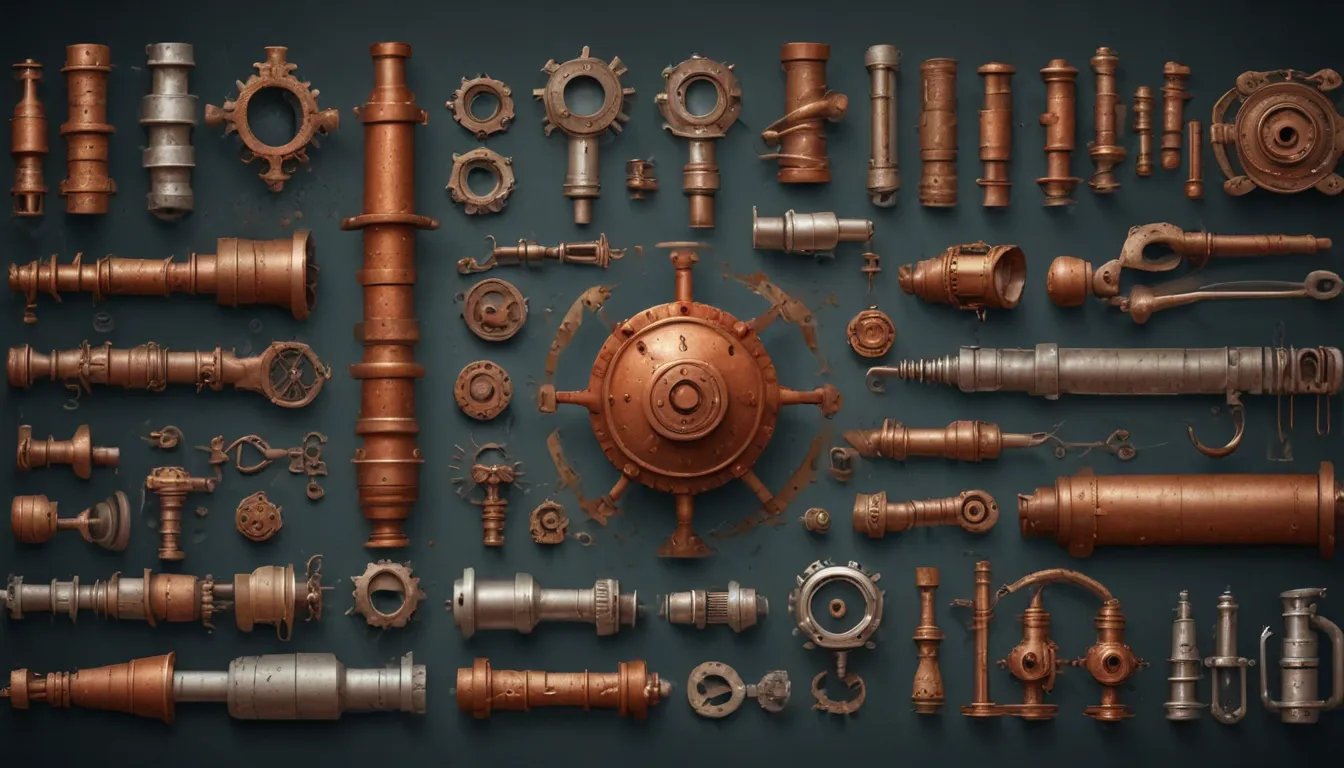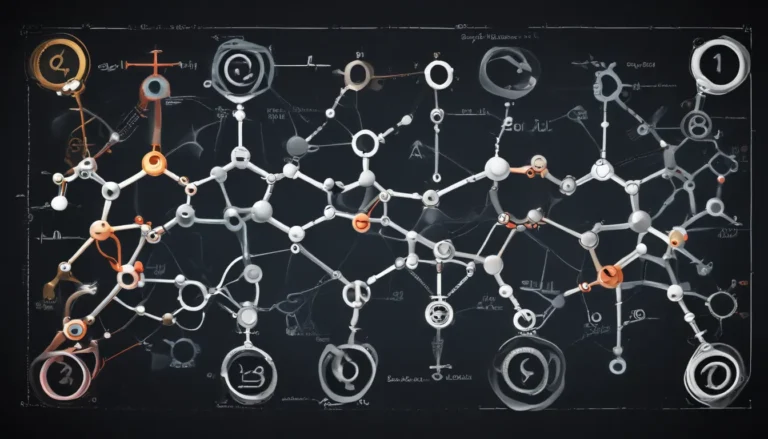A Note About Images: The images used in our articles are for illustration purposes only and may not exactly match the content. They are meant to engage readers, but the text should be relied upon for accurate information.
Corrosion is an inevitable process that affects metals when exposed to the environment, causing gradual deterioration. This can be a major concern for industries, leading to significant damage and financial losses. However, the development of corrosion inhibitors has revolutionized the fight against corrosion, offering a powerful solution to protect valuable assets.
In this comprehensive guide, we will delve into the captivating world of corrosion inhibitors and explore 16 fascinating facts about them. From understanding their mechanisms of action to exploring their wide-ranging applications across different industries, we will uncover the importance and impact of corrosion inhibitors in safeguarding materials and structures.
Key Takeaways:
- Corrosion inhibitors form a protective shield against harmful substances like oxygen and moisture, preventing rust and damage to materials.
- These inhibitors come in various types and are utilized in industries such as oil and gas, automotive, and marine to prolong the lifespan of structures and equipment.
- Continuous research and development drive innovation in corrosion inhibitors, leading to substantial cost savings for businesses.
- Proper usage and maintenance are essential for optimal corrosion protection, ensuring the longevity of assets and infrastructure.
Corrosion Inhibitors: The Shield Against Oxidizing Agents
Corrosion inhibitors function by creating a protective barrier on the surface of materials, inhibiting the interaction between corrosive substances like oxygen and moisture with the metal. This barrier significantly reduces the rate of corrosion, preserving the material and extending its lifespan.
The Different Types of Corrosion Inhibitors
Corrosion inhibitors can be classified into three main categories: organic inhibitors, inorganic inhibitors, and mixed inhibitors. Each type offers distinct properties and is tailored to specific corrosion prevention needs, showcasing versatility in combating corrosion.
Organic Inhibitors: Widely Utilized for Effectiveness and Versatility
Organic corrosion inhibitors, derived from carbon compounds, are widely used due to their effectiveness and adaptability. They can be customized to suit different applications, making them a popular choice across various industries for corrosion protection.
Inorganic Inhibitors: Providing Exceptional Protection
Inorganic corrosion inhibitors, such as chromates and phosphates, offer exceptional protection against corrosion. They are favored in industrial settings that require high resistance to corrosive environments, showcasing their effectiveness in combating rust.
Mixed Inhibitors: Combining Organic and Inorganic Benefits
Mixed inhibitors blend organic and inorganic compounds to create corrosion inhibiting properties that surpass those of their individual components. This synergistic effect enhances overall corrosion resistance, making them a powerful choice for corrosion protection.
Various Application Methods of Corrosion Inhibitors
Corrosion inhibitors can be applied through diverse methods such as spray coating, immersion, or incorporation into coatings or paints. This versatility allows for seamless integration into existing corrosion prevention systems, offering ease of use for enhanced protection.
Effective Protection Across a Wide Range of Materials
From metals like steel, iron, and aluminum to non-metals like concrete and polymers, corrosion inhibitors have demonstrated their effectiveness in safeguarding a diverse array of materials. Their versatility makes them a valuable asset in corrosion prevention strategies.
Crucial Role of Corrosion Inhibitors in the Oil and Gas Industry
In the oil and gas sector, where pipelines and equipment face extreme corrosive conditions, corrosion inhibitors are essential to prevent costly damage and maintain the integrity of critical infrastructure. Their use safeguards against corrosion-related issues, ensuring operational efficiency.
Automotive Industry Benefits from Corrosion Inhibitors
Corrosion inhibitors play a vital role in protecting vehicle exteriors, undercarriages, and metal components in the automotive industry. By preventing rust caused by harsh weather conditions and road salt exposure, inhibitors help prolong the lifespan of automotive equipment.
Extending Lifespan of Structures with Corrosion Inhibitors
Implementation of corrosion inhibitors can significantly extend the lifespan of structures like bridges, buildings, and industrial facilities. This leads to reduced maintenance costs and ensures long-term durability, showcasing the economic benefits of corrosion protection.
Environmental Friendly Corrosion Inhibitors
In response to growing environmental concerns, the development of environmentally friendly corrosion inhibitors has gained traction. These inhibitors offer effective protection while minimizing their environmental impact, aligning with sustainable practices.
Extensive Use of Corrosion Inhibitors in the Marine Industry
Given the constant exposure to seawater, ships, offshore platforms, and marine equipment are highly susceptible to corrosion. The extensive use of corrosion inhibitors helps combat this issue, preserving the structural integrity of marine assets in challenging environments.
Customization for Specific Environments
Corrosion inhibitors can be tailored to provide optimal protection in specific environments, whether acidic or alkaline. This adaptability ensures that the inhibitors perform effectively in diverse settings, catering to unique corrosion challenges.
Research and Development Driving Innovation
Researchers and scientists continually strive to enhance corrosion inhibitors’ performance through ongoing studies and innovative formulations. This dedication to innovation enhances corrosion protection, benefiting various industries with improved solutions.
Cost Savings Through Corrosion Inhibitors
The economic impact of corrosion is substantial, resulting in significant maintenance, repair, and replacement costs for businesses. By utilizing corrosion inhibitors, these expenses can be mitigated, reducing the need for repairs and preserving asset lifespan, leading to cost savings.
Essential Maintenance for Optimal Protection
While corrosion inhibitors are highly effective, proper usage, routine inspection, and maintenance are critical for ensuring continued protection. Regular monitoring and timely reapplication of inhibitors are essential for maintaining optimal corrosion protection.
Conclusion
In conclusion, corrosion inhibitors are essential substances that safeguard materials against the damaging effects of corrosion. The 16 captivating facts highlighted in this guide shed light on the diverse applications and significance of corrosion inhibitors in protecting assets across industries. As technology advances and research progresses, corrosion inhibitors will continue to play a pivotal role in preserving material integrity and longevity.
FAQs
Q: What is a corrosion inhibitor?
A corrosion inhibitor is a chemical compound added to a corrosive environment to prevent or reduce the rate of corrosion by forming a protective layer on the material surface.
Q: Where are corrosion inhibitors used?
Corrosion inhibitors are utilized in various industries like oil and gas, power generation, transportation, and infrastructure to prevent corrosion in applications such as pipelines, tanks, and metal structures.
Q: How do corrosion inhibitors work?
Corrosion inhibitors work by forming a protective film on the metal surface to act as a barrier against corrosive agents or by neutralizing corrosive species to prevent further corrosion.
Q: Can corrosion inhibitors be environmentally friendly?
Yes, there are environmentally friendly corrosion inhibitors formulated using non-toxic and biodegradable materials to provide effective corrosion protection while minimizing environmental impact.
Q: How long do corrosion inhibitors last?
The duration of protection provided by corrosion inhibitors varies based on the type, corrosive environment, and application. Some inhibitors offer long-term protection lasting several years, while others may require frequent reapplication.
Q: Can corrosion inhibitors be used on all types of metals?
Corrosion inhibitors can be tailored to specific metals and alloys to provide optimal protection by accommodating their unique corrosion characteristics and requirements.
Additional Resources
Curious to explore more ways to protect against rust and wear? Check out articles on protective coatings for stylish defense, rust prevention for bicycle chains, and the corrosion resistance of tantalum to gain unique insights into preserving your belongings and equipment.
Feedback
We strive to provide trustworthy and engaging content by reviewing each submission with care. Your contributions help enrich our platform with diverse insights and information, ensuring the highest standards of accuracy and reliability. Trust in our commitment to quality as you explore and learn with us.






